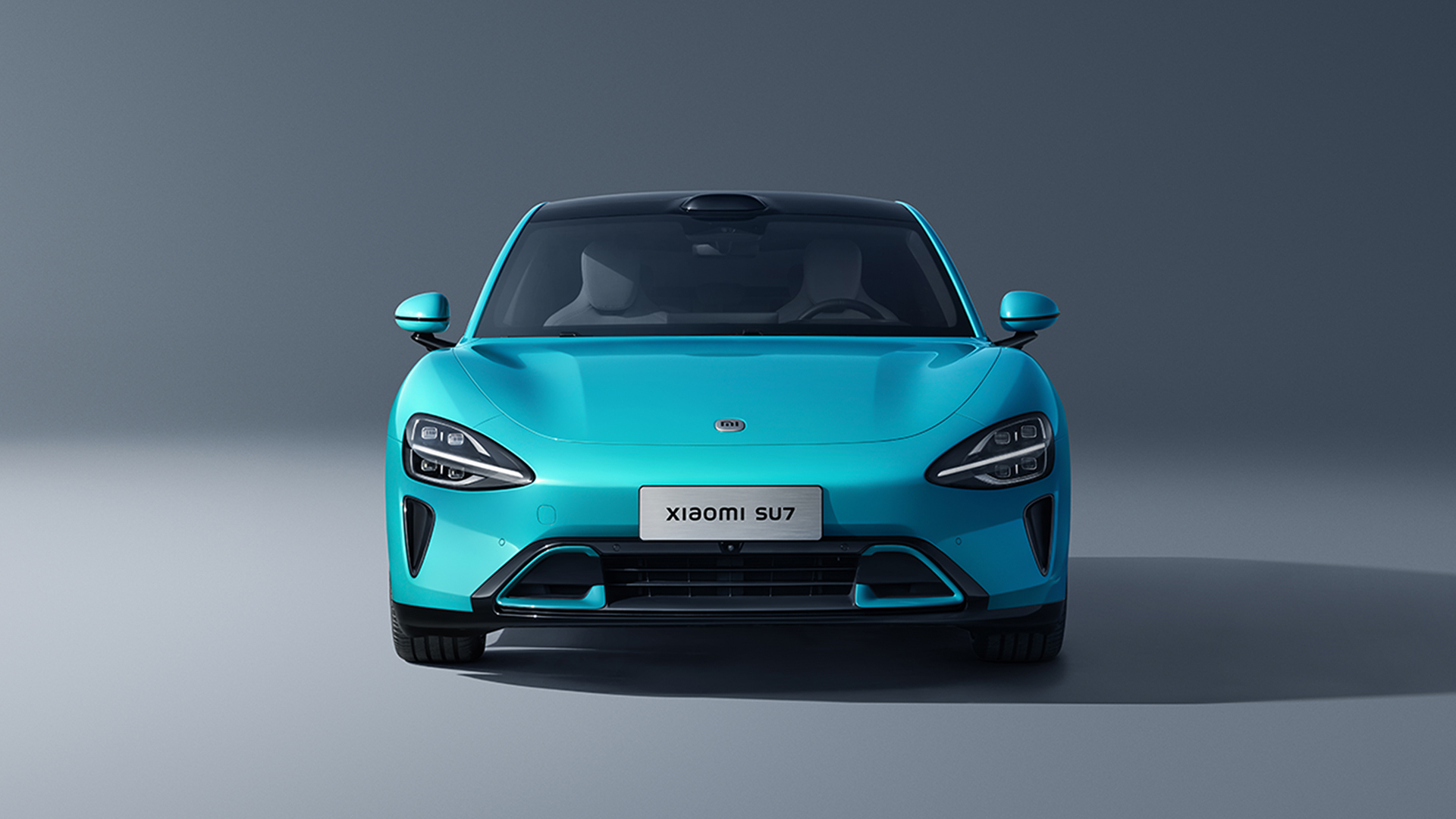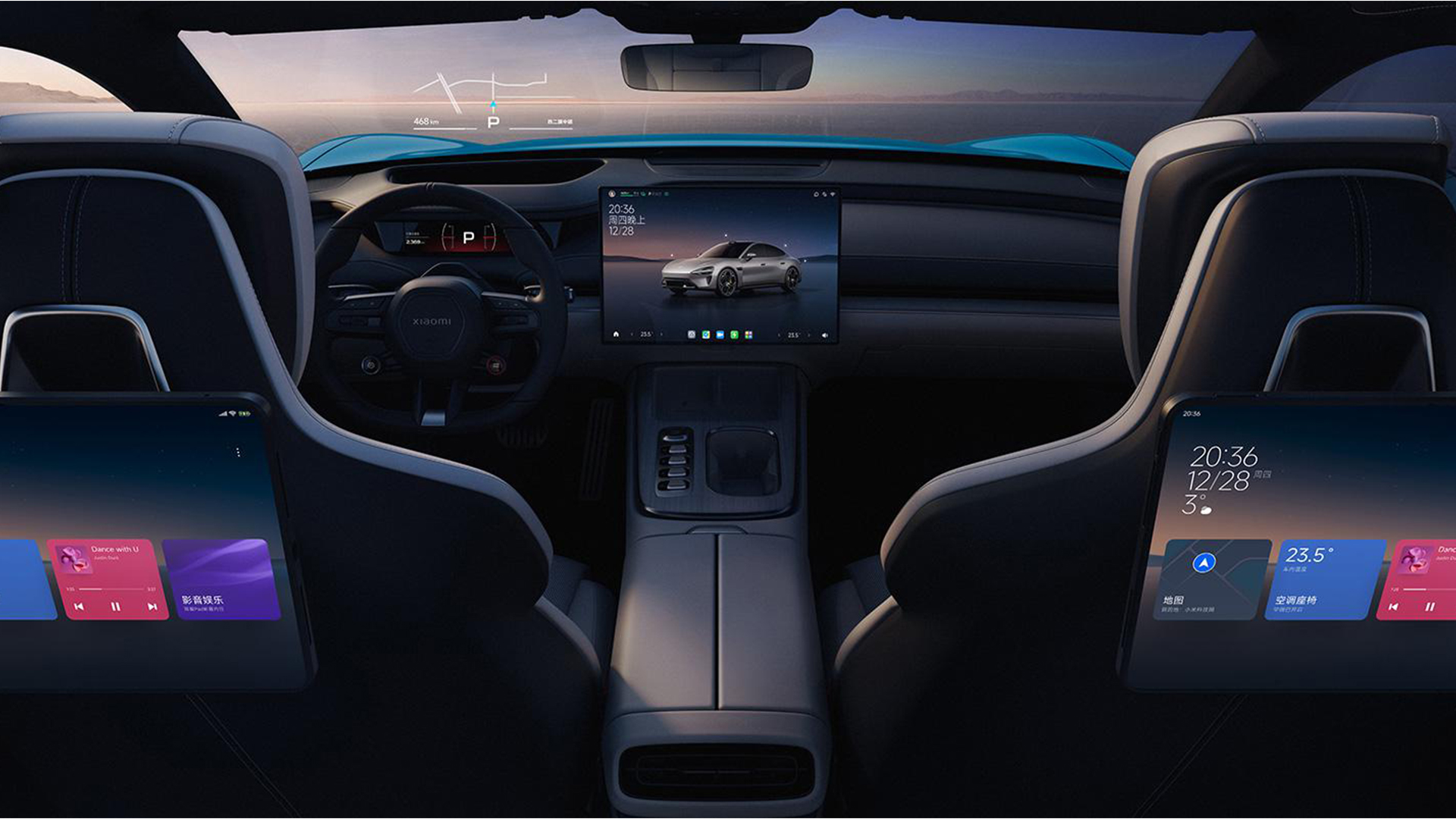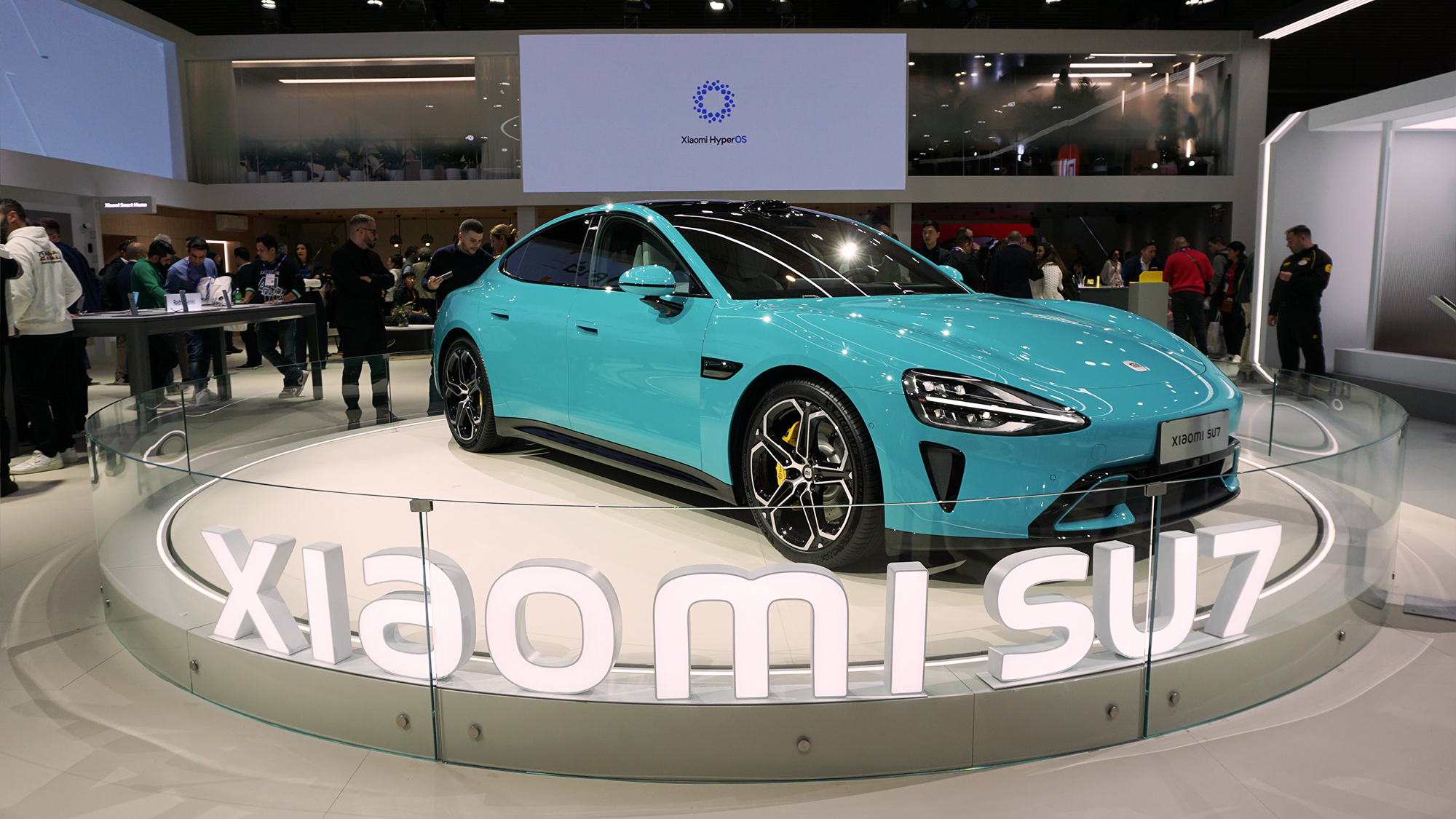Xiaomi's first electric car already has a six-month waiting list in China
Pre-orders of the SU7 EV hit almost 89,000 in just 24 hours

Sign up for breaking news, reviews, opinion, top tech deals, and more.
You are now subscribed
Your newsletter sign-up was successful
Chinese smartphone maker Xiaomi revealed the production version of its hotly-anticipated SU7 electric vehicle last week. But just days after the reveal, the tech giant has reportedly told potentially customers there could be a six to seven-month wait for their order to arrive.
As a reminder, the SU7, which is manufactured by state-owned BAIC Group, is the smartphone specialist's first foray into electric vehicles, with the standard car costing just 215,900 yuan (around US$29,900 / £23,663 / AU$46,000 at current exchange rates). It offers 435-miles of range and just shy of 300bhp from its electric powertrain.
That’s no mean feat, yet the SU7 Pro, which now reportedly has an 18-21 week lead time, offers a staggering 516 miles on a single charge. There’s also a Max version that touts 497 miles of range but sees performance rise to 663bhp – enough to shame many modern supercars.

However, the BBC reports that potential customers will have to wait up to 27 weeks for the most potent models, according to screen grabs taken by punters and posted on Chinese social media.
Being seen to at least want Xiaomi’s debut car appears to be the hottest social trend in its domestic market, with Bloomberg suggesting that social media users have been placing deposits, posting their receipts online and then withdrawing said deposits once the admiration from fellow users had died down.
However, CarScoops claims that some of those looking to get their 5,000 yuan (around around US$690 / £550 / AU$1,100) deposits back have struggled, with Xiaomi stating this is down to user error, rather than anything malicious from the company.
Cutting out the competition

Although the early signs look good for Xiaomi's first EV, it still has to play the long game and the current electric vehicle market in China is highly competitive.
Sign up for breaking news, reviews, opinion, top tech deals, and more.
BYD, which is hailed as the country’s largest maker of EVs, is busy launching new models and cutting the prices of its existing offerings, citing the fact that growth had slowed at the tail end of last year.
What’s more, Tesla also offers its popular Model 3 in the country, where it is priced at 245,900 yuan for entry level versions. The Xioami SU7 sedan undercuts this by some 30,000 yuan, which is around $4,145 / £3,300/ AU$6,500.
As an additional incentive, Xiaomi also released 5,000 Founder's Edition models, which reportedly came with free gifts, such as fridges. These immediately sold out.
The tech giant’s chief executive Lei Jun said in a Weibo post that it would open a second round of sales for the Founder's Edition due to the massive demand.
Xiaomi clearly has the finances to fund what could become a fierce price war in the country, while many industry insiders feel that its expertise in smartphones and laptops – something it has introduced into the car – offers a huge advantage given that infotainment is often at the very top of the Chinese buyer’s wish list.
With Apple ditching its plans to produce an electric vehicle, the Xiaomi SU7 is the first real look at what a consumer tech giant can bring to the world of automotive. And the traditional car giants like Ford, Nissan and Honda will have to find ways to fight back.
You might also like

Leon has been navigating a world where automotive and tech collide for almost 20 years, reporting on everything from in-car entertainment to robotised manufacturing plants. Currently, EVs are the focus of his attentions, but give it a few years and it will be electric vertical take-off and landing craft. Outside of work hours, he can be found tinkering with distinctly analogue motorcycles, because electric motors are no replacement for an old Honda inline four.